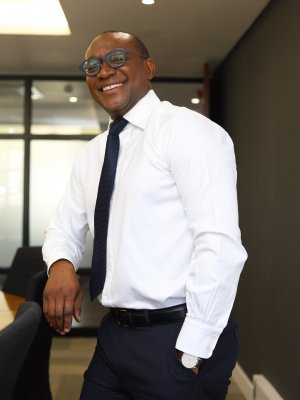Moving into the consultancy field is not as straightforward as saying, “I want to help business leaders make key strategic decisions.” Dr Nobulali Dangazele, GIBS lecturer and strategy consultant, Wandile Bereng, managing director at OTB Group, and David Rabinowitz, innovation specialist and independent consultant, share their insights around what it takes to embark on a career as a consultant.
1. Deciding to be a consultant
The first step of the journey is to reflect on why you want to become a consultant. You need to do some soul searching and understand what you want out of your career. Ask yourself:
- What experience do I have?
- What am I good at and where how can I add value?
- Do I want to be a specialist or a generalist?
- Do I want to work in a team or by myself?
- Where do I want to live and work?
- How hard do I want to work and how much money do I want to earn?
All of these questions will help you come to a decision about becoming a consultant and where in the consulting world you fit in. Global consulting firm McKinsey & Company has a careers quiz on its website that can also help point you in the right direction.
Dangazele then says you need to be honest about your personal obligations. If you are a single parent, for example, and cannot travel, you need factor that into your decision of how you will structure your career.
This leads to the next question: do you want to work for one of the big multinational consulting firms or would you prefer a smaller niche firm? Maybe you are looking to start up your own business.
In summary
Before you embark on a career in consultancy, you need to understand what you want out of your career. Ask yourself:
- How can you add value as a consultant?
- Do you want to be a global citizen, or do you have responsibilities that tie you to home?
- Are you a team player or do you prefer to operate independently?
- How hard are you prepared to work?
- How much money do you want to earn?
2. Going big or carving out a niche?
The opportunities presented by big firms and small firms are very different. Your working style and priorities will dictate for which you would be better suited.
Bereng explains that big firms can offer their consultants global opportunities. “They also offer you scale of opportunities and practice,” he says and adds, “When you work in a firm like that you tend to specialise in an area like resources, healthcare or transport.”
So you may find yourself working in oil in the Johannesburg office, and then be moved over the London office or Nigerian office to consult on one of their oil fields, which means you have the opportunity to work abroad and get global experience.
If you are a new graduate, the multinational firms can offer exciting opportunities. Not only do they offer graduate recruitment programmes, but they also give their young associates opportunities that may not be available in smaller firms or other industries.
“You can be 26 and presenting to a chief executive or a board. Where else would you be able to do that?” asks Rabinowitz. They are, however, extremely competitive workspaces and demand 60- to 80-hour work weeks, says Bereng.
The larger firms also require you to be a team player. Dangazele says, “Ask yourself before you join: Do I like working in teams or as an individual? What is my internal culture? Does it fit with the organisation I want to join?” She urges people to do their research on companies before they join them, so they know exactly what is expected of them.
If you are not drawn to the status of working for the global giants, a smaller firm may be a better fit. They are typically less competitive and offer a greater breadth of work as you will have to participate across a number of jobs covering different businesses and sectors. Bereng says, “In my firm, I look after strategy, business development and finance. So, while that takes some specialisation, there is still a huge amount of cross-pollination.”
However, they often require higher levels of education and a more diverse skill set.
Being small, niche firms require everyone to pull their weight in terms of bringing in business. Bereng explains that while you may contribute your skills across a number of different areas in the business, you are still responsible for bringing your own clients and billing.
Perhaps one of the biggest advantages a smaller firm can give a consultant is agility, the ability to move fast and take on new challenges as and when demanded, says Dangazele.
In summary:
The size of a firm is an important consideration as they offer different opportunities, as well as challenges:
Global Giants
- Offer global exposure
- Require teamwork
- Have graduate programmes
- Sector-specialisation
- Career advancement
- Demand very long hours
The niche firm
- Greater flexibility
- Business and personal agility
- More work independence
- May require higher qualifications
- Broad range of work opportunities
- Also demand long work hours
3. Characteristics of a successful consultant
Consultancy is a people-centric business. As such, successful consultants need high emotional intelligence and a strong arsenal of soft skills.
Rabinowitz says that consultants need to have a higher desire to please than people in other industries as they need to want to please the people they are working for. Bereng adds that good consultants must have a good emotional maturity, because consultants get limited credit for the work they inspire. He explains, “If you are looking for recognition for the work that you do, you will be disappointed. We produce work that makes other people look good.”
Dangazele builds on this and says in addition to emotional intelligence, you need to have cultural intelligence. “You need to understand the unspoken rules and norms of the culture that you're engaging with. Our cultural differences can influence what our expectations look like and what is expected of each other,” she says.
Relationship-building is another invaluable trait of a consultant. Dangazele says to do this consultants need to be good listeners, be able to improvise, have empathy, and be agile enough to adapt to the changing needs of clients. Rabinowitz also says they need to be influential when it comes to guiding people. “You are helping a client to think properly and getting them on board, so that you create a solution that belongs to everyone,” he says.
In addition to having a high degree of enthusiasm and intelligence, a good consultant is also a good problem-solver, says Rabinowitz, while Dangazele says consultants must have curiosity and a strong desire to research. “You must be willing to read in the area that you are working in but also read up on the client. I lack confidence if I haven't thoroughly done my research,” she says.
And finally, consultants need a good dose of self-belief, says Bereng. “You can’t be questioning yourself. You need to have confidence to stand up in from of people and say, ‘This is what I think.’”
In summary:
In addition to technical skills, good consultants must have an array of soft skills, including:
- Enthusiasm
- Intelligence
- The ability to listen
- Problem solving
- Creativity
- The need to please
- High emotional maturity
- Cultural intelligence
- Self-belief
- Agility and improvisation
4. Starting out – how to get hired
Although consulting is not a career you can study for per se, a degree is necessary. Rabinowitz says that if you want to be a specialist consultant then the accompanying degree is necessary. For example, if you want to be an engineering consultant, then you need an engineering degree. But general business degrees, with economics, marketing, strategy, and change management will all get you a foot in the door. GIBS offers a specialist Consulting MBA where people can expand their business knowledge while learning all the theory behind various strategy and planning models.
If you are a young graduate, Rabinowitz says it is worth investigating the graduate programmes being offered by the larger firms. Bereng, as a director in a smaller firm, says that their minimum qualification was a Master's degree. “Anyone with a Master's degree has had to sweat it through a thesis or a dissertation,” he says, which is important for the firm as research is a key pillar to its business strategy. He notes, though, that more junior people are now being employed and a postgraduate degree or diploma is sufficient.
Dangazele believes it is about having the right mindset for the job. You have to develop yourself so that your skills and resumé match what consulting firms want. You have to demonstrate that you have the education, skills, experience and personality to get the job done. Critically, when getting interviewed, you have to be prepared to ask the right questions back, show that you are able to think and engage strategically. The industry is extremely competitive, and you have to make sure that you stand out.
When looking for a work opportunity, all of the large consulting firms have websites with job information and application processes. To get into smaller firms you may have to approach specialist recruitment agencies or tap into your network.
In summary
Consulting is a competitive field; you need to be able to show you have what it takes. Website indeed.com gives a good summary of the steps required to get hired:
- Pick a field
- Develop your skills
- Create a resumé or portfolio
- Earn certifications
- Make new connections
- Search for job openings
- Prepare for your interview
5. Excelling as a consultant
Consulting is a demanding career and requires a high degree of professionalism and maturity. Rabinowitz, Dangazele and Bereng all say the same thing: a career in consulting is a journey of self-discovery.
Rabinowitz says, “You are constantly being mentored by the world. You are getting an intimate view of different business and an insider’s view of how they work.” However, although you are working for different companies across different industries, you are always essentially dealing with people.
This is why Dangazele believes her qualification in performing arts stands her in good stead. It allows her to listen for cues, improvise and respond quickly to clients. This ability to listen is critical. Rabinowitz says that listening is key, as this is where you find opportunities. He says, “If you're listening and asking the right questions, you're going to identify opportunities.”
Dangazele says it is very important to keep improving your skill set. She is an avid reader, and not only reads to upskill herself but also to keep abreast of happenings in the industry and her clients. She also urges consultants to try different activities. “Travelling and reading are vital for self-development, but a third important thing is to keep harnessing different skills,” she says.
A good network is essential. A successful consultant has a network of people to draw on. Not just a network of clients, but a network of experts in different fields who are there to help you to give your clients the best service, solution or advice. Bereng says having the ability to call on contacts to assist to solve client problems or to seek advice is critical. Dangazele agrees. “I thought I was doing this alone, and then I realised I could call on people to help me. When I first did this I felt like an imposter, but it is an important aspect of the job.”
And in a digital world, Dangazele believes that any successful consultant needs to harness the power of technology innovatively. Dangazele, for example, sends her clients video presentations, so that they have all the information they need before they meet. This then makes meetings more efficient and shorter.
In summary
Consultancy is an evolving career and requires consultants to constantly be on a journey of self-discovery and skills development:
- Listen and ask the right questions
- Improve your skill sets through courses, reading and travelling
- Constantly build your network
- Use your networks to enhance your offering
- Be innovative in your use of technology
6. Climbing the corporate ladder
Although every firm is different, their structures are similar. At the bottom of the pyramid, you have the junior consultants and internships. You then move up to senior consultant, managers, partners and then directors.
If you want to succeed in a global consultancy firm, you will be expected to work extremely hard. Rabinowitz says 14- to 18-hour days are the norm. He advises consultants to put their hands up and show willingness. He urges junior consultants to align with the right people and to get involved, learn the job. A good consultant is also professional, always on time and always delivering on deadline.
Rabinowitz, an ex-Deloitte consultant, adds, “There's a lot of additional stuff that corporates will put in the mix. Your ability to build a team or hire and manage a team. You need to be able to do all the practice management tasks, mentor younger people, manage billing, etc.”
But perhaps the most important metric of success in the world of consultancy is the ability to bring in billable clients. Rabinowitz says that this aspect of the job is the most daunting for consultants. Bereng expands on this and says, “The business needs a certain amount of revenue to meet its obligations, and that revenue needs to be profitable.” So Rabinowitz advises, “Try and get involved in selling. Go to the sales meetings, work on the proposals.” This way you learn how to sell, build networks and bring in the money. And ultimately, that is what consultancy is about – building and keeping a loyal client base.
In summary
Consulting firms are competitive, climbing the corporate ladder requires long-term strategic approach:
- Work hard
- Be a team player
- Align with the right people to mentor you
- Be punctual and deliver on deadline
- Learn to work with, hire and manage a team
- Build your network and learn to sell your services
7. How to start your consulting business
To start your own consulting firm, all you need is a computer and a Wi-Fi connection. However, that does not mean you have a viable business proposition.
When starting your own business, the most important starting point is to ask yourself is, do you have clients? Bereng says, “When we started OTV, our initial retainers were from people I'd worked with, when I was in big business and had actually given them business … And even today, we still get most of our business from our networks.”
The next step is to decide if you are going to go solo or if you need additional skills in the business in the form of partners. Not only do partners mean the business has more capacity to deliver, It also means that you have a bigger network to draw on for both clients as well as expertise. “The thing about professionals is that they bring in other professionals. And that that's how we we've managed to get top-end consulting partners to join us for projects,” says Bereng.
One of the biggest challenges a consulting business faces, says Rabinowitz, is that of moving the business away from the founder. A sustainable business needs to be able to operate independently of the owner, but it is typically the owner of the business who has brought in the clients. A way to address this matter is to employ the right people. Rabinowitz says, “At some point, you have to you have to hire people that are going to question you and challenge you.” He says that requires a mature attitude. If you cannot do this you will end up killing the ability for the organisation to be independent of you.
Dangazele urges business owners to get assistance. “I was working six days a week, 18 hours a day at one point. I was earning a lot of money, but I was in a prison.” Her solution was to employ a full-time personal assistant who could run the administration side of the job for her fully. “She was almost like my business partner,” Dangazele explains. By having assistance, with jobs like preparing presentations, writing up reports, scheduling meetings, a lot of Dangazele's time was freed up.
In summary
Before quitting your job to start a business, ask yourself:
- Do I have good enough network to get clients?
- Do I want to work by myself or with partners?
- Am I creating a business that can run independently of me?
- What skills does my business need and what type of people do I want to hire?
- Do I need a personal assistant to run my office and the business administration?
Dr Nobulali Dangazele joined GIBS as a lecturer in 2021. With a doctorate from Warwick Business School in the UK, her previous background was in theatre. After completing her Master’s at Wits, for which she was awarded the Mandela Rhodes Scholarship, she started ShakeXperience, an applied theatre company, best known for the award-winning adaptation of George Orwell’s Animal Farm.
Wandile Bereng is a GIBS MBA and Group MD of OTB Group, a diversified advisory and professional management services group. He is passionate about strategy and highly motivated by the repeated results of a well-designed and executed strategy. His experience in C-suite management is complemented by years of successful delivery on efficient profitable outcomes.
David Rabinowitz is an adviser in strategy and decision making at Iconiq Advisory. He is a creative and experienced strategy facilitator, focused on driving strategy using critical thinking in the decision-making process. David leads large strategy projects from conceptualisation to implementation, boasting 20 years’ experience across several South African industries. He is also an accredited business coach.










